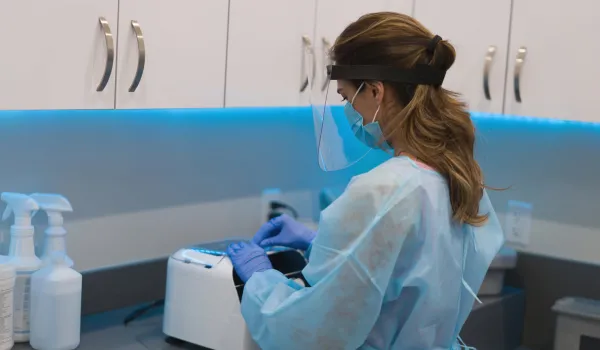Concorde Staff

Becoming a registered nurse or other allied/ancillary health care professional at Concorde Career College takes study and mastery.
At the same time, working with patients requires compassion and understanding. How do you develop a connection with your patients, help empower them and assist them in healing? The answer is strategic storytelling.
Knowing how to listen to patients' stories and telling your own personal story makes you a better health care professional. Here's a breakdown about how storytelling works.
THE ART AND IMPACT OF STORYTELLING
Researchers and studies have found that strategic storytelling has a positive impact.
While most health care professionals recognize that treating dementia patients can be challenging, researchers discovered that medical students became more empathetic to their patients’ conditions after participating in storytelling programs.
Plus, a study at the University of Massachusetts Medical School found that storytelling was effective to help change the behavior of those who had hypertension.
STORYTELLING AND NARRATIVE MEDICINE
Storytelling is a good fit for narrative medicine. The narrative medicine approach recognizes the value of taking into account the personal and psychological history of the patient.
It allows for the construction of meaning, encourages a holistic approach, encourages empathy between patient and clinician and generates creativity in treatment. It helps health care professionals understand both the stigma and social context of illness.
ARENAS FOR STORYTELLING
Storytelling can easily take place in different arenas. Online patient communities and forums are places where sick individuals can share their experiences and help others. It's a platform where their personal voices can be heard.
It's also therapeutic in both reflection and receiving encouragement from others. One-on-one, health care professionals can take the time to develop storytelling with their patients.
For example, a patient comment about wanting to be able to eat their favorite foods again can be followed up with the health care professional asking about their special dishes on holidays. This opens the door to the patient telling a personal story.
It's not just about becoming a registered nurse; it's about becoming the best-registered nurse that you can be.
IMPROVING CLINICAL OUTCOME
There is some real data out there that proves using the skills of empathy in storytelling reduces malpractice claims, reduces patient stress and improves clinical outcome.
When you think about it, the ability to connect with others is healing. And there’s really no excuse not to. It doesn’t take time either. Showing empathy is a feeling and not an action. It’s also human.
Whether the stories are small or big, there’s something of value to be shared. You’ll be inspired by the personal stories of patients.
Perhaps, their own personal story will even enhance your own personal story. All around, the art and practice of storytelling are a simple yet good thing.

Take The Next Step Towards a Brighter Future
We have a Concorde representative ready to talk about what matters most to you. Get answers about start dates, curriculum, financial aid, scholarships and more!



